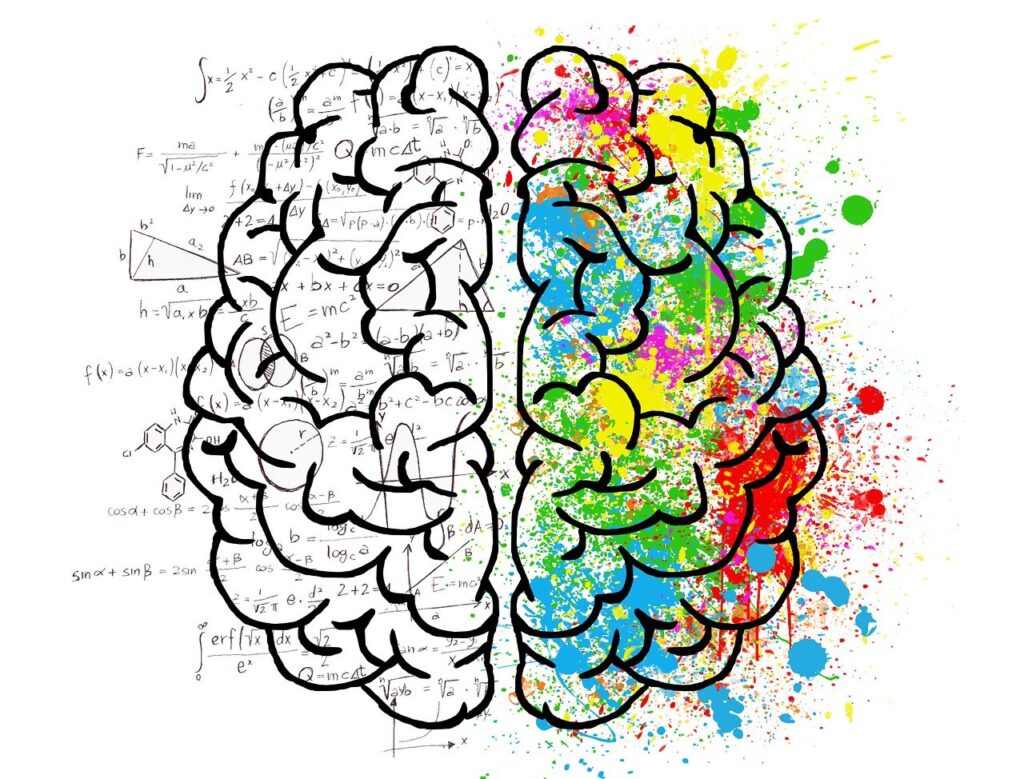Why people who choose to do things without feeling obligated tend to grow and improve their abilities?
When we feel like we are being forced to do something or we didn’t choose to do it ourselves, we often don’t feel its value.
Making our own decisions can reduce negative emotions in any situation.
Today’s focus is on the fear of obligation.
This is because the feeling of being forced or obligated to do something can have such a big impact on our lives that it can ruin them. When we do exactly the same thing, such as working or exercising, we don’t feel its value unless we choose to do it ourselves. In other words, the more elements we choose for ourselves when doing the same thing, the more we feel its value.
Do you ever feel like the food you make yourself tastes better for no particular reason?
This is partly because it’s freshly made, but also because the satisfaction comes from the process of choosing the ingredients, cutting them, cooking them, and seasoning them.

We should reduce actions we take out of a sense of obligation and increase actions we choose for ourselves. This talk is about how making our own decisions, regardless of what they are, can reduce negative emotions, while people who make few decisions or have low decision-making frequency can accumulate negative emotions and ultimately become the cause of their life not going well.
It is often said that people who do what they love for a living are happy just by doing that.
If you can determine what you love and make it your job, then it will undoubtedly be a happy thing. However, in life, there are always things that you must do but do not like. At such times, there is research that says that even if you don’t like something, if you decide to do it yourself, you can achieve completely different performance than doing it reluctantly.
It is essential to decide for yourself,
“I’m going to do this even though I don’t like it because I can succeed, and I’ll do it just to save money.”
Small decision, big change
Moreover, it has been found that making decisions is effective, even for very small decisions.
For example, deciding to read this book today or having eggs and bacon for breakfast instead of pancakes, even for small things like these, making a decision will change our brains to be stronger against negative emotions.
I would like to explain the effect of small decisions.
The first effect is that it activates the prefrontal cortex. The prefrontal cortex is the part of the brain responsible for rationality and decision-making and also has the ability to process negative emotions.
Even in everyday small things, when you decide that you made the decision yourself, the prefrontal cortex is activated, and since it also has the ability to process worries and anxieties, it is known that worries and anxieties also decrease at the same time.
You may often hear the advice to just do it before you hesitate, and it is indeed a common thing that, by deciding whether to do it or not instead of worrying, anxieties and worries decrease, and you become more motivated.

The second effect is that it affects the circuit of the brain’s attention and increases positive emotions, making you more motivated.
The brain creates positive emotions for the choices you have made, which means that it produces dopamine and increases motivation.
Therefore, to increase your motivation and move closer to success in life, it is effective to make a habit of small, easy-to-decide things, not just significant decisions, and train yourself.
If someone can’t make decisions for themselves, they will end up fearing the obligation of obligation that is the theme of today’s discussion.
By making their own decisions, humans can decrease negative emotions and overcome anxiety, worries, and fears. However, if someone is not good at making their own decisions and lives by doing things they don’t want to do while feeling like they don’t want to do it, they may easily feel anxious about whether this is really okay forever.
Also, it is known that when comparing someone who does things by making their own decisions and someone who does things out of a sense of obligation, even if they do the same thing, the person who made the decision themselves will achieve better results.
In one experiment, subjects were divided into groups forced to exercise and groups encouraged to exercise voluntarily. As a result, the group forced to exercise was found to have less benefit from exercising than the group that exercised voluntarily.
Why was there a difference even though they were doing the same thing? This is due to the presence or absence of dopamine assistance mentioned earlier.
Humans have a tendency to like what they choose, and when they choose something, they become motivated and can achieve better results even when doing the same thing. Even if there is something they don’t want to do, instead of doing it reluctantly, it’s better to make the decision to do it themselves and approach it.
…Then how to do it?
For those who say they don’t know what to do even if they make small decisions, I would like to summarize what kind of practice they should do.
The easiest one is to decide the order of household chores. Decide what to do in what order and practice doing it in that order.
For example, wash the dishes, then vacuum, and then take out the garbage.
Just deciding the order of things you do every day can be a training for decision-making.
The second training is to decide not to buy. This can be done by deliberately deciding not to buy something when you are undecided about whether you want it, or by setting a rule for yourself not to buy certain things.
For example, you may decide not to buy toilet paper from a certain manufacturer or not to buy snacks that contain certain ingredients.
By deciding not to buy certain things, not only will you feel relieved, but also you will develop attachment to the things you did not buy without any regret.
The third training is to make decisions about throwing things away. It is a good idea to think of throwing things away as a training because it is difficult to throw things away and before you know it, your room is overflowing with things and you will end up using energy to tidy up.
Therefore, it is a good approach to consider it as a training, make your own decisions, and throw away or recycle things.

Thank you for reading


